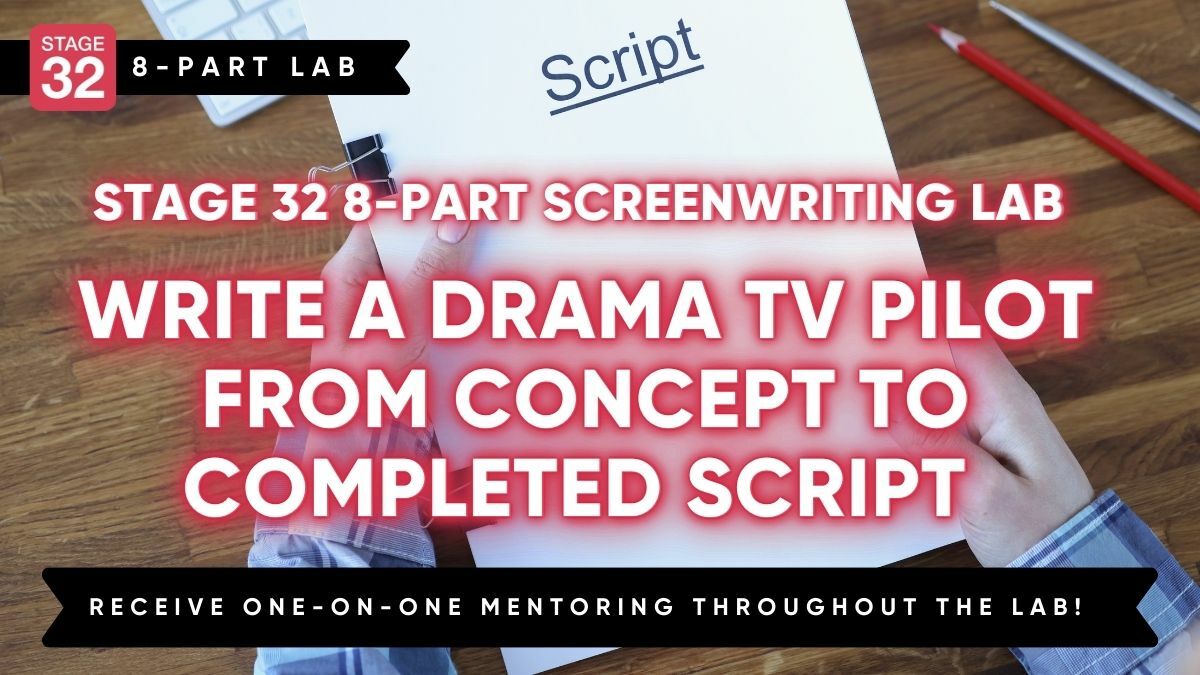Whatever prep work you do - outlines, beat sheets, character sketches, etc. - when it comes time to fill 90-120 blank pages with a story, I say: anything goes! Not sure a character would say or do something? Write it anyway! Have a good idea for a bit of action or dialogue but think it makes the scene or sequence go on too long? Write it down! Think you're including too much exposition, or giving away a twist too soon, or spending too much time in one location! Write it all! Because you can always cut it when you revise. You can always change anything. You can always think about what makes it better, stronger, smarter, on your next pass. What you may not be able to do is remember what you were thinking the first time, if you didn't include it. And the first draft you write shouldn't be the first draft you show people. Work with it, shape it, pare it down, clean it up. Then show it to people, so we can point out what you may have missed or weren't thinking about. But when first writing that script, don't hold back! Put it all on the page. You never know what gems may drop out of your head, and you want to see them shining when next you come 'round...



2 people like this
Some good points. For me sometimes the first draft is easy, yet I often re-write to a fault. My first story idea almost always changes, I try to stay true to the plot and let my character drive the story.
3 people like this
Vomit Draft, Words-on-Paper Draft, Draft Zero. Whatever you call it, it is necessary, and it should never be seen by any human being other than the writer.
Editing your own writing is like growing a beard, or any other hair: you can’t cut it until it’s out of you. So write it down! Cut it later.
Good advice welcome to the Stage!
Write the shitty first draft and take it from there. Get it done, then rewrite!
I often bust out a first draft as quickly as possible, let it settle, re-read it, mark it up, re-read it again and throw it out and start over. The best parts of the story will stick in your memory. But that's just my process; I doubt it's for everyone.
Good thread, Andy, I edit as I go so it's not quite as bad as it might have been - my biggest shocks are when I read some of my early scripts/masterpieces, I cringe and die of embarrassment.
We all have our own way of working, certainly - but the important thing on that very first draft is to fill the empty pages, by whatever methods & means work best for you. Or another way to put it: don't second guess yourself on a first draft. Save the decision for revision.
Good points, now with that we all should have a first draft completed any day now (:
Here is an exercise worth thinking about - I haven't tried it because it's scary. When you finish your first draft, destroy it and start over. What scenes, characters, etc, do you remember? The ones you remember are the good ones - scenes, characters, etc. Your second draft might be stronger than your first.
Frank a great exercise, I just recently performed that task with a finished draft . My complete rewrite made for a more intriguing story. My character arc is much stronger and the scenes description give a better sense of the characters motivation. Yes it is scary because I spent two days with pens sticking me in my gut. Lost in wonder if I just blue my once creative process and if I would ever see the benefits of a completed script. I can say yes, I finished it and it is Better than it was before , it is like my thoughts just rang louder and clearer. Would I do it again ?. Yes, it honed my development process, and flushed out everything that strangled the true plot.
Andy , you are right . Whatever pops out of my thinking must be written down , from them I recreate my ideas , to sharpen them , and I take the best for creating the real story .
Frank, that can definitely be a useful technique for writers who get an idea and write a complete first draft, no steps in between…for those who plot everything out with beat sheets, outlines, character sketches, maybe even full treatments before writing that first draft, the details worth forgetting should have - hopefully - already fallen away like so many dead leaves. Or been removed, like dead branches, diseased knots, pesky insects… Arboreal metaphors aside, it can still be a good technique for a new draft, whatever one's writing style or preparation. BUT: never actually destroy any previous work. Save it, and don't consult it, but don't trash it. You may yet decide you want it.
Andy: Here's another tid bit - if you can't "see" the poster, don't write the screenplay. I would never destroy the draft - too afraid I might not remember a great scene. If I forget a great scene, then how great was it in the first place?
While a first draft will require some revision, it also contains some "inspired" work, well, mine do anyway - to destroy that first draft, start anew, from scratch, on the premise that one may recall the good scenes and provide a superior product second time 'round - well, I find that extraordinary, but if it works for you, do it, it certainly don't work for me.